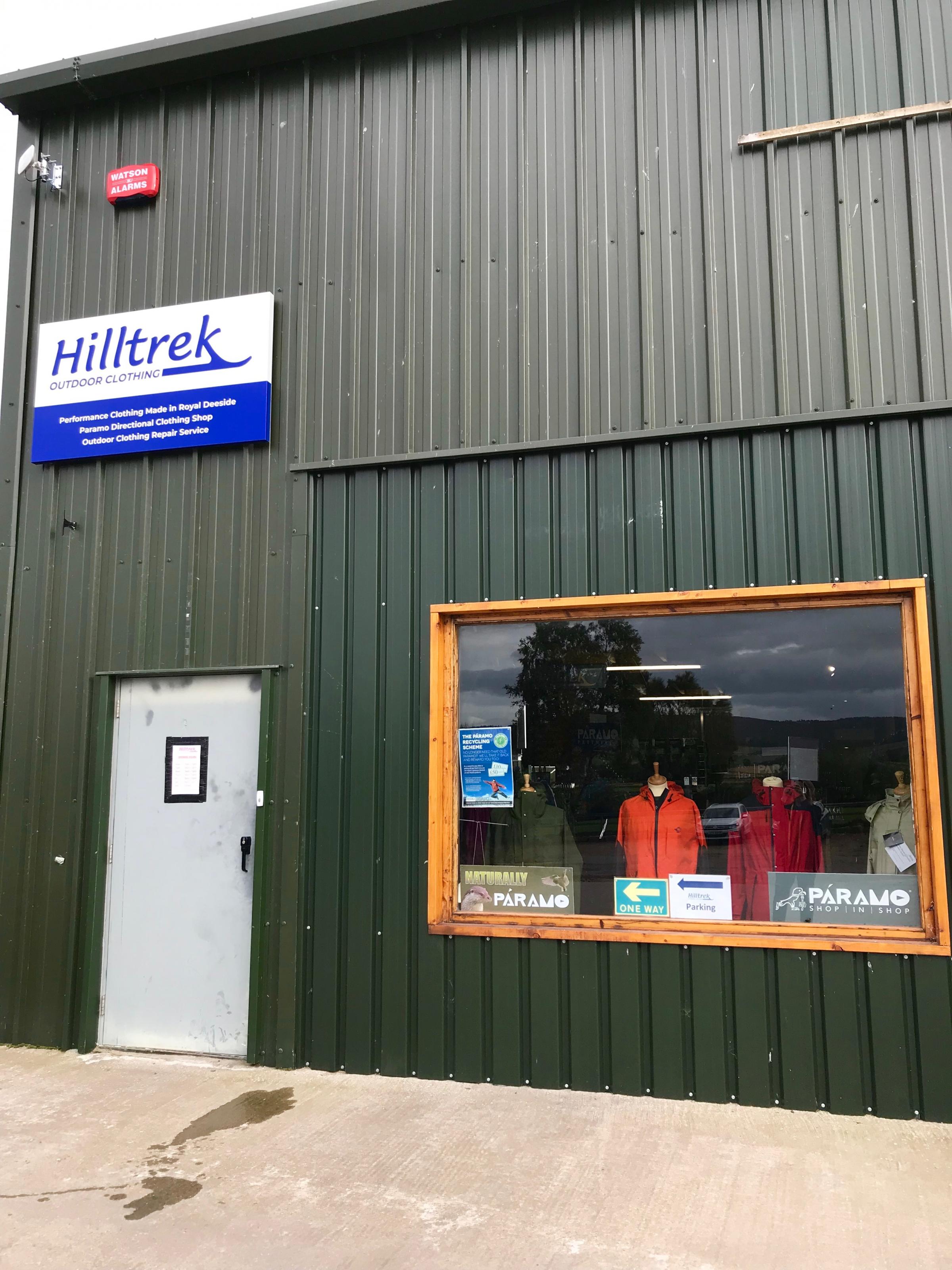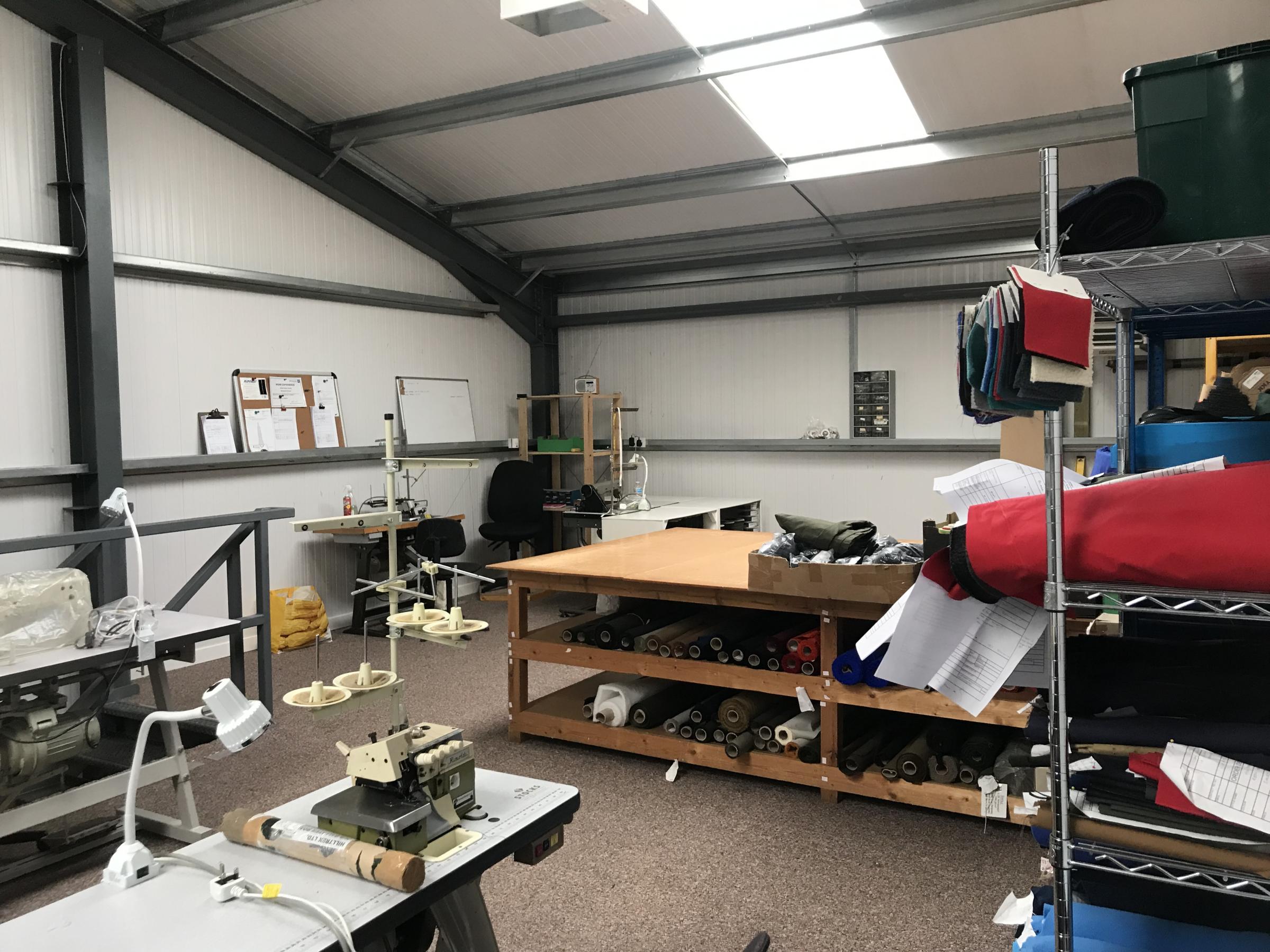
CUSTOMERS in the Republic of Ireland have been forced to order parcels to Northern Ireland in a bid to skirt Brexit red tape, a Scottish business owner has said.
David Shand, one of the owners of specialist clothing firm Hilltrek Outdoor Clothing, told The National it was cheaper for many of his customers in the Republic to have their items delivered to Northern Ireland then collect them than it was to have them delivered to their own address.
The company, based in Aboyne, Aberdeenshire, designs bespoke clothing garments, from custom smocks to outdoor jackets.
Shand said problems had begun to arise for his customers across the EU after Brexit took effect, with deliveries being a key issue.
Before Brexit, the European Union accounted for 15% of the business's turnover. Now it’s just 8%.
He said: “Selling to the EU was a doddle prior to Brexit. The administration involved in selling to customers in Dusseldorf was the same as that to Dundee. Now it is a horror.
“Shipments are taking longer, goods are getting lost, our administration costs are increasing, shipment costs are increasing.
“We had one customer in Germany who ordered clothing in February for a canoe trip he was doing in April. We shipped the garments in March allowing three weeks for delivery because of the experience we were having with other customers.

“He finally received them in June. His shipment was trapped between UPS and German customs, bouncing between them on a daily basis. Pressure from our courier on UPS didn’t achieve anything.
"Finally, goods were released to the customer with no explanation why there had been a delay.
“He obviously had done his canoe trip without our clothing."
While Shand’s customers aren’t alone in experiencing post-Brexit delivery issues, the 69-year-old said some in the Republic of Ireland have come up with creative solutions to the problem.

“We’ve experienced the same sort of issues with Ireland as we have experienced in with Germany and the Netherlands and Sweden and so on,” he said.
“But the Irish have uniquely found a way around it, and that's for us to send the goods to Northern Ireland to pick up from a friend in Northern Ireland and drive it across the border or get them to send it over.
“Because the customs between Northern Ireland and Ireland are simpler they probably find it easier to do it that way."
Shand said it was “crazy” customers felt forced to have their clothing delivered this way but it seemed to work better for many than sending it directly to their homes.

Due to the Northern Irish Protocol, the country has in effect remained inside the EU's Single Market. This means that, unlike the rest of the UK, goods can freely travel between the EU and Northern Ireland.
On top of delivery issues, Sand's firm has faced problems with sending repaired clothing back to customers, with some countries, such as the Netherlands, charging customers VAT for the price of the original item and not the repair.
The Aberdeenshire man said Brexit red tape is one of the reasons customers are now opting for competitors.
He said: “Some customers in the EU have told us that despite favouring our products they are now sourcing from competitors in the EU because of import processing charges.
“There was much noise from the UK Government about finding alternative markets outside the EU but we were already addressing these markets.
“Much vaunted trade agreements, especially with the US which could have offset the loss in EU business, have failed to materialise.
“There’s no doubt we are losing out to competitors. Some customers will say it’s just now too expensive to buy from you and we’ll go elsewhere.”
A Foreign, Commonwealth and Development Office spokesperson suggested the Northern Irish protocol is the reason it's often easier for some customers in the Republic to send their parcels up north.
They said: “The Northern Ireland Protocol is not working as intended and has caused economic and political problems in Northern Ireland which need to be fixed. We'd prefer to do this through negotiations, however the EU have repeatedly refused to change the protocol.
“That's why we introduced the Northern Ireland Protocol Bill, which will protect the Belfast (Good Friday) Agreement, address the problems facing businesses and protect the EU single market.”







